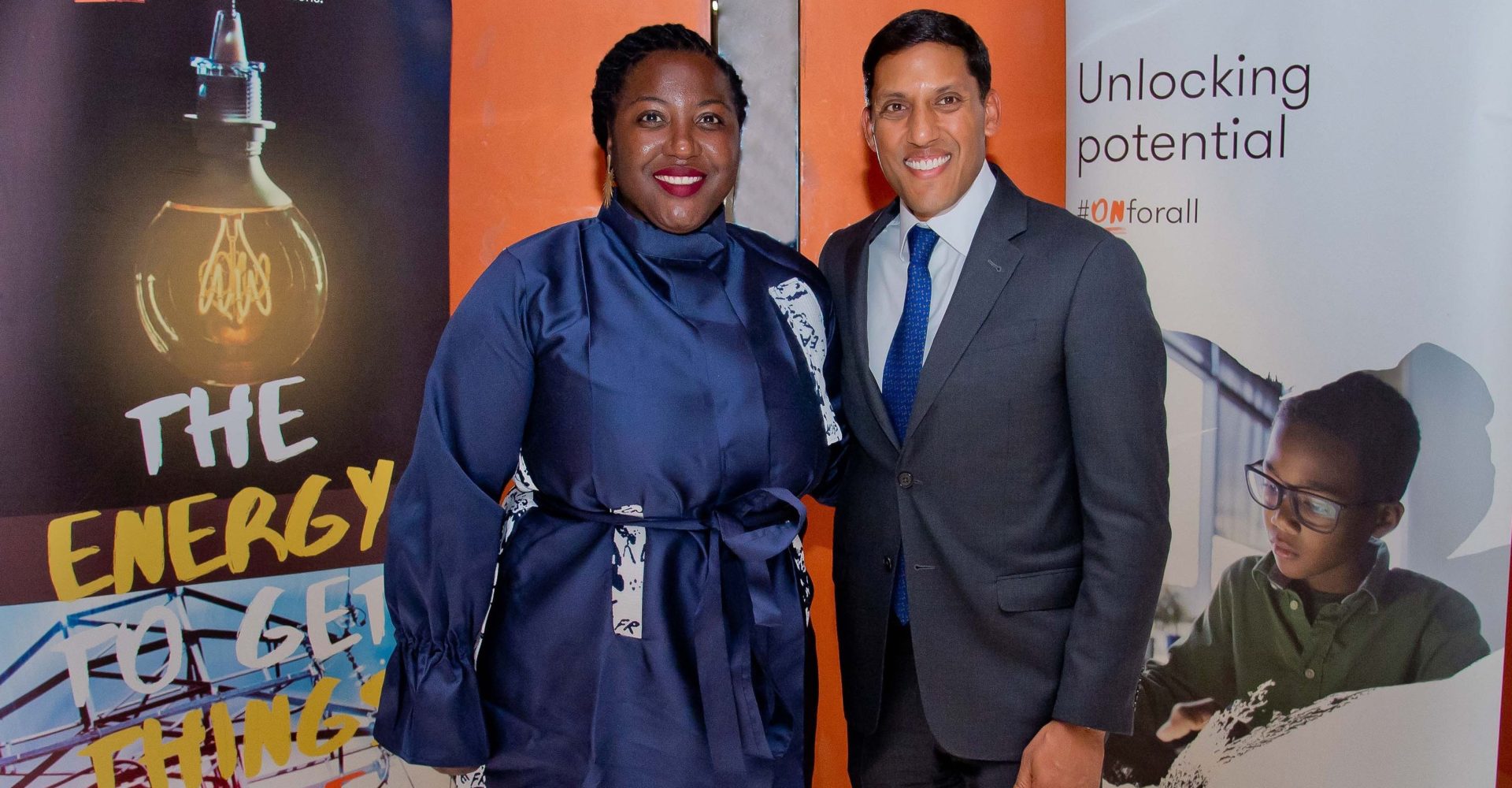L-R: Chief Executive Officer, All On, Caroline Eboumbou; President, Rockefeller Foundation, Dr. Rajiv H. Shah at the Alliance Partners Roundtable co-hosted by All On, Rocky Mountain Institute, (RMI), and The Global Energy Alliance for People and Planet (GEAPP) recently in Lagos.
All On, a leading Nigerian impact investment company in partnership with Rocky Mountain Institute, (RMI) and The Global Energy Alliance for People and Planet (GEAPP) co-hosted an Alliance Partners Roundtable recently to discuss the existing and emerging challenges faced by Mini-grid developers and financiers, while proffering solutions that will drive growth and unlock scale within the Mini-grid Sector.
The event hosted Dr. Rajiv H. Shah, the President of Rockefeller Foundation, RF, a global institution with a mission to promote the well-being of humanity around the world. It highlighted the root cause(s) of the limited scale in the Mini-grid sector (Isolated & Interconnected Mini-grids), shared key learnings and opportunities from the Demand Aggregation for Renewable Technologies (DART) program, Energizing Agriculture Program (EAP), Utility Enabled DERs and DER Roadmap. These seek to address challenges related to financing, underutilization within the Mini grid sector, prohibitive financing cost, Import Dependency and Unavailability of FX, and lack of scale.
Sub-Saharan Africa, (SSA) faces an energy crisis, with 43% (590 million) people lacking electricity, according to International Energy Agency (IEA, 2021). Nigeria, the region’s most populous nation, is particularly affected, with 45% (99 million) people lacking access. This lack of access to electricity requires a significant funding increase of an estimated $27 billion annually needed by 2030 in SSA. With this, the event focused on exploring ways to unlock commercial, local currency financing and refinancing for mini grids, and of unlocking scale through productive uses of power for mini grids.
Speaking at the event, CEO, All On, Caroline Eboumbou, said, “This roundtable discussion with our esteemed partners emphasises the urgent need to address the energy crisis in Sub-Saharan Africa, particularly in Nigeria. With millions lacking access to electricity, innovative solutions like mini grids are crucial. This event focused on identifying the challenges that hinder mini-grid growth, such as financing limitations and underutilized capacity. By unlocking commercial, local currency financing and promoting productive uses of power, we can create sustainable mini-grids and empower communities across the region.”
“The World Bank, African Development Bank, and GEAPP are committed to partnering with project developers and governments to electrify 300 million Africans, with a focus on providing 100 million Nigerians with clean energy. We will learn from your challenges and work together to overcome them, fostering a more sustainable and equitable future for all,” said Dr. Rajiv H. Shah, President, Rockefeller Foundation.
Also speaking at the event, Nigeria Country Director, Rocky Mountain Institute, (RMI), Suleiman Babamanu, said, “We are thrilled to bring together renewable energy developers in the presence of the RF president for this alliance roundtable. This collaborative effort represents a significant step forward in our mission to create sustainable and resilient energy solutions. By combining our expertise and resources, we can address the pressing challenges of climate change and energy access, driving innovation and economic growth for communities worldwide.”
Other speakers at the event were, Finance Manager & DART Program Lead, All On, Tomilola Olakiigbe; Senior Associate, RMI, Folawiyo Aminu; CEO, Prado Power, Washima Mede and Nigeria Country Director, PowerGen, Seun Edun.
The Alliance Partners Roundtable represents a significant step in tackling the energy access crisis in Nigeria. By harnessing the collective knowledge and expertise of key stakeholders, the critical solutions to unlock the potential of mini grids identified can pave way for a future where millions in Nigeria and by extension Sub-Saharan Africa, can gain access to clean and reliable electricity, fostering economic growth and improved livelihoods.


Comment here